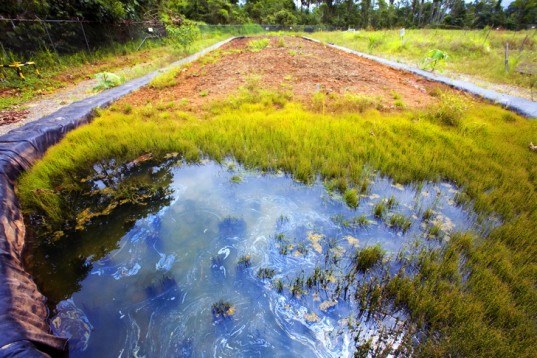Research
Bioremediation is a promising biological approach for the remediation of contaminated sites. However, real world application of this technology is limited by the incomplete understanding of the fundamentals of microbial processes that govern the fate of environmental pollutants. Chlorinated solvents and petroleum hydrocarbons are common soil and groundwater pollutants. Cost-effective and innovative remediation methods are needed for treating these contaminants. In this context, my research efforts are focused on the biodegradation of chlorinated and petroleum hydrocarbons using innovative microbial processes.
One of my new research focuses at OSU is the analysis of microbial community structure and dynamics in animal waste lagoons. A large problem facing swine operations is developing economical and environmentally safe waste management systems. Microbes play a key role in the digestion of organic waste and the production of malodorous compounds in waste lagoons. Currently, very little is known about spatial and temporal changes in microbial community structure induced by biotic or abiotic factors in holding ponds. Also, only a few studies have documented the potential for groundwater contamination by pathogenic organisms and transfer of antibiotic resistance genes in natural populations. In this context, my initial focus is to look at community profile, structure, responses to disturbances in a lagoon treating swine waste using molecular tools. Specifically, denaturing gradient gel electrophoresis (DGGE) and terminal restriction fragment length polymorphism (T-RFLP) have emerged as powerful tools for bacterial community analysis.
Specifically, my current research projects address:
- Project 1. Biodegradation of vinylchloride (VC) and cis-dichloroethene (cis-DCE) by
aerobic organisms:
Isolate and study microbial physiology and ecology of cis-DCE and/or VC-assimilating organisms from various chloroethene-contaminated aquifers. Assess degradation kinetics and bioaugmentation potential of the isolated strains. - Project 2. Biodegradation of petroleum hydrocarbons (BTEX) by halotolerant and halophilic
organisms under aerobic and anaerobic conditions:
Isolate and study microbial physiology and ecology of BTEX degrading bacteria and archaea from hypersaline environments. Assess degradation kinetics and bioaugmentation potential of the isolated strains. Develop species-specific primers to assess ecological distribution of the isolated halophiles. - Project 3. Study microbial diversity and dynamics in animal waste lagoons using 16S rDNA probes, t-RFLP, and DGGE techniques.

